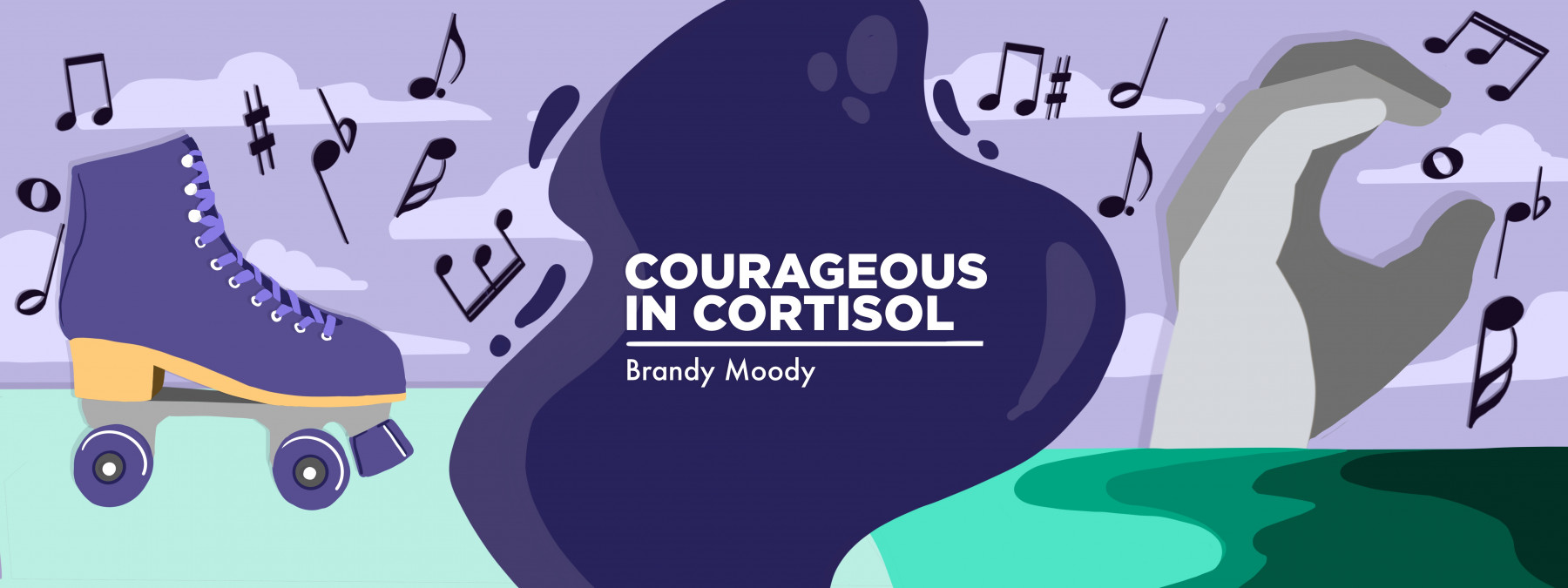How pregnancy made me realize the depth of my medical trauma
Carrying a child sometimes felt like the symptoms of Cushing's had returned
Written by |

Emotional scarring from Cushing’s disease wasn’t something I predicted, but everywhere I turn, I discover residual feelings from that experience.
I’m 13 weeks postpartum with my first baby, and I hadn’t realized until I gave birth the extent of emotional and psychological turmoil Cushing’s put me through before my pituitary tumor was removed in 2020. The disease and the pregnancy are definitely different, but some of the symptoms are similar. I’d experienced a severe hormonal disturbance because of my pituitary adenoma, and that made my pregnancy and postpartum journey more challenging.
Since my case of Cushing’s was caused by an ACTH-secreting pituitary adenoma, I had preexisting concerns about how my body was going to react to pregnancy hormones. The pituitary gland is called the master gland because it’s the control center for all things hormone. Since this child was my first, I didn’t know that some aspects of pregnancy would mimic Cushing’s. That’s what drove me to look deeper into my Cushing’s wounds.
Most pregnant women gain the most weight in the third trimester, and that was visibly apparent in my case. What was interesting to me were the similarities between “Cushing’s me” and “pregnancy me.” My face slightly resembled a moon face, but not as severe as when I had Cushing’s. My limbs were swollen in my third trimester of pregnancy, with joint pain similar to what I’d felt before.
I found myself Googling pregnancy-induced Cushing’s, but the results were inconclusive. I tried not to let my emotions get the best of me since babies can feel what their mothers feel.
Reliving some of these Cushing’s symptoms made me dig deeper into my emotional well-being. I believed that once I got my body back to “normal” after going into remission from Cushing’s, I’d be freed from the emotional turmoil that imprisoned me, but that wasn’t the case. I overanalyze every detail of my body, almost as if I’m waiting for Cushing’s to make a grand reappearance.
At times I’m harshly critical about the way my brain operates; I think my processing is on the slower side some days, as if I have selective residual brain fog. I’m also triggered by certain comments made by others, but I feel that’s a normal response for someone who’s gone through a traumatic medical experience like Cushing’s.
Now, I’m working on unpacking these traumas and healing them as I go. I don’t expect them to heal as quickly as I’d like because that takes time. But I know that eventually I’ll get to a place where I’ll have more control over my emotions, and I’ll be able to curate tools to help me do that. I work every day to be kinder to myself and to love myself through all of life’s circumstances.
Note: Cushing’s Disease News is strictly a news and information website about the disease. It does not provide medical advice, diagnosis, or treatment. This content is not intended to be a substitute for professional medical advice, diagnosis, or treatment. Always seek the advice of your physician or other qualified health provider with any questions you may have regarding a medical condition. Never disregard professional medical advice or delay in seeking it because of something you have read on this website. The opinions expressed in this column are not those of Cushing’s Disease News or its parent company, Bionews, and are intended to spark discussion about issues pertaining to Cushing’s.







Konstanzia Kulakowski
I am grateful that you have been able to verbalize my experience of this insidious and frustrating disease. I am saving your account as a framework to articulate my frustrations to myself and the people around me who have had to deal with my uncontrollable emotions. The unexplained physical changes of my body both visual and metabolic were sometimes easier to deal with than my inability to string together a complete sentence or perform simple mathematical calculations exacerbated by sleepless nights when I would spend overthinking everything.